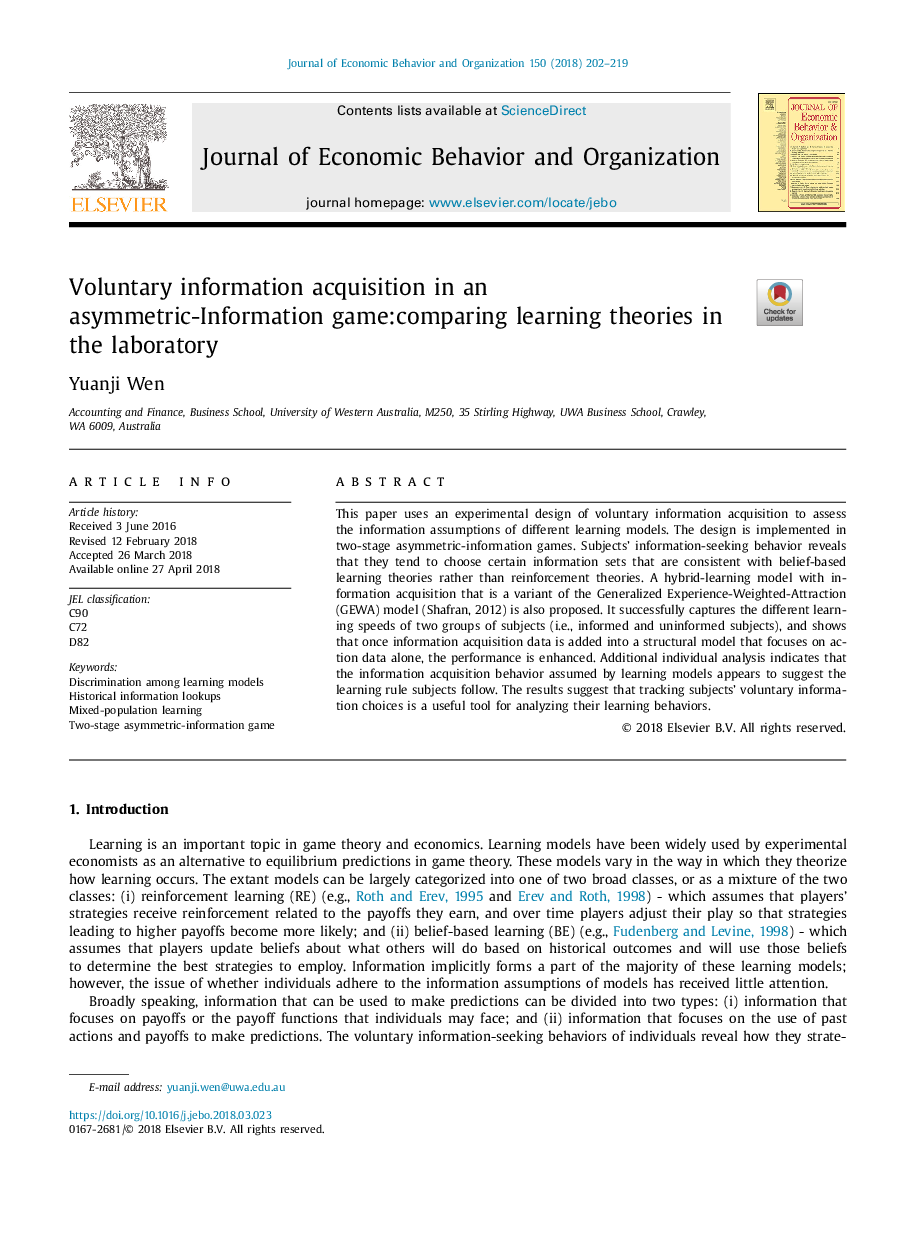| Article ID | Journal | Published Year | Pages | File Type |
|---|---|---|---|---|
| 7242529 | Journal of Economic Behavior & Organization | 2018 | 18 Pages |
Abstract
This paper uses an experimental design of voluntary information acquisition to assess the information assumptions of different learning models. The design is implemented in two-stage asymmetric-information games. Subjects' information-seeking behavior reveals that they tend to choose certain information sets that are consistent with belief-based learning theories rather than reinforcement theories. A hybrid-learning model with information acquisition that is a variant of the Generalized Experience-Weighted-Attraction (GEWA) model (Shafran, 2012) is also proposed. It successfully captures the different learning speeds of two groups of subjects (i.e., informed and uninformed subjects), and shows that once information acquisition data is added into a structural model that focuses on action data alone, the performance is enhanced. Additional individual analysis indicates that the information acquisition behavior assumed by learning models appears to suggest the learning rule subjects follow. The results suggest that tracking subjects' voluntary information choices is a useful tool for analyzing their learning behaviors.
Related Topics
Social Sciences and Humanities
Economics, Econometrics and Finance
Economics and Econometrics
Authors
Yuanji Wen,
